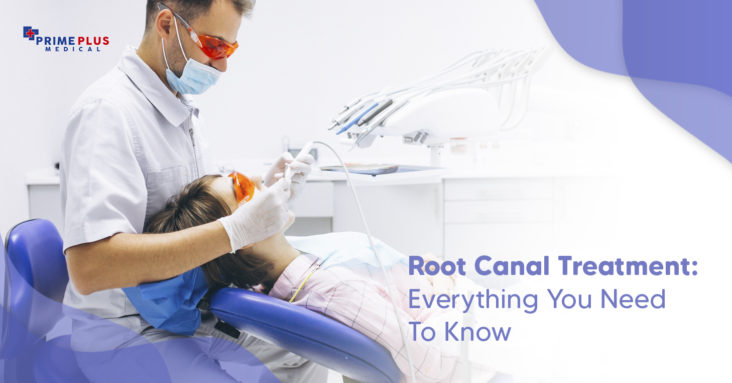If you have been experiencing problems with a tooth and cannot handle your tooth pain, you might be wondering, “Do I need a root canal?”. Well, root canal treatment itself is a procedure that uses biologically acceptable chemical and mechanical treatments in the root canal system to eliminate pulpal and periradicular disease(s) and to promote healing and repair of periradicular tissue (American Association of Endodontists). Root canal treatment aims to preserve functional teeth. Most cases of root canal treatment can be carried out by general dental practitioners. Cases with difficulty levels that fall outside the comfort zone of the practitioner may be referred to an endodontist.
Root Canal Symptoms
Some symptoms indicate the need for tooth canal treatment. You may experience pain in your tooth. The intensity of the pain can range from mild to severe; it might lessen or intensify throughout the day, or it might get worse only when you bite down on the tooth. Another symptom that might be you feel is you will have more sensitivity to heat or cold, tenderness to touch and chewing, discoloration, swelling, or tenderness in your lymph nodes. You may notice a pimple-like presence on your gum. Your gums might also feel tender and swollen near the problem area. However, you may not experience any of these symptoms, but may still require root canal therapy to prevent further damage and to save a tooth. If you do not get a root canal treatment after experience some symptoms, the infection in the tooth can spread to other parts of the body, and in some cases can be life-threatening. If you require a root canal, the infected pulp in the tooth needs to be removed. Waiting too long to get a root canal can oftentimes result in tooth loss. This generally occurs when the root of an infected tooth has gone untreated for so long that results in bone loss. Many times with severe furcation, it might be too late for a root canal and the tooth would need to be extracted.
Root Canal Treatment Process
This root canal treatment is necessary you need when the pulp, the soft tissue inside the root canal, becomes inflamed or infected. The infection at the center of a tooth (the root canal) is caused by bacteria that live in the mouth and invade the tooth. The inflammation or infection can have a variety of causes: deep decay repeated dental procedures on the tooth or a crack or chip in the tooth. Besides, an injury to a tooth has no visible chips or cracks. If pulp inflammation or infection is left untreated, it can cause pain or lead to an abscess. The endodontist removes the inflamed or infected pulp, carefully cleans and shapes the inside of the root canal, then fills and seals the space. Afterward, you will return to your dentist, who will place a crown or other restoration on the tooth to protect and restore it to full function. After restoration, the tooth continues to function like any other tooth.
Special Care After Root Canal Treatment
After a root canal, make sure to follow all of your endodontist’s instructions. You should not chew or bite on the treated tooth until you have had it restored by your dentist. The unrestored tooth is susceptible to fracture, so you should see your dentist for a full restoration as soon as possible. Otherwise, you need only practice good oral hygiene, including brushing, flossing, and regular check-ups and cleanings. Most endodontically treated teeth as long as other natural teeth. In a few cases, a tooth that has undergone endodontic treatment does not heal or the pain continues. Occasionally, the tooth may become painful or diseased months or even years after successful treatment. Often when this occurs, redoing the endodontic procedure can save the tooth. New trauma, deep decay, or a loose, cracked or broken filling can cause new infection in your tooth. In some cases, the endodontist may discover additional very narrow or curved canals that could not be treated during the initial procedures.
We Are Here For You
We at Prime Plus Medical Clinic are committed to providing you with the best dental care available. Keeping up with your “regular check-ups” and cleanings will allow us to identify any problem before it progresses. Your visit to our office can potentially save a tooth and avoid pain and more involved procedures down the road. Contact us and schedule your appointment today! We look forward to serving your every need.
Sources: dentalcare.sg, aae.org.

